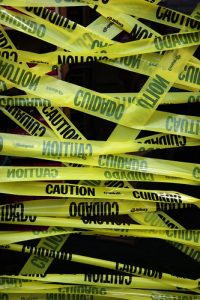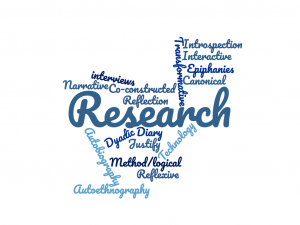
“fp071308-11”by fontplaydotcom
is licensed under CC BY 2.0
After our first class, I needed to go home and get right to work AND I needed to do absolutely nothing so my brain could absorb the conversations. So I compromised by gardening and cooking. After a significant break, I was able to work on creating my blogsite. Thank goodness I had done Thursday’s readings already!
The Autoethnography: An Overview article was pretty heavy for me. So much vocabulary but yet the idea is quite simple: “an approach to research and writing that seeks to describe and systematically analyze personal experience in order to understand cultural experience.” The article listed a number of types of autoethnography, but quantifying and qualifying this type of research is complicated. “As ethnography, autoethnography is dismissed for social scientific standards as being insufficiently rigorous, theoretical, and analytical, and too aesthetic, emotional, and therapeutic.”
Autoethnography is actually connected to a concern I have about our provincial numeracy testing and the International Baccalaureate (IB) Middle Years Programme (MYP) Mathematics exam I mark based on a mark scheme from IB: does the assessment require personal experiences that may influence a students’ success when unpacking the questions? If I research the success students experience in the numeracy assessment, based on their cultural experiences and the type of questions they chose to do their long answers on, then I would likely be using some variation of autoethnography. I can see that this is an area where I will need to delve a little deeper. Re-reading the article and making a dictionary of terms (as was suggested in class) is on my to-do list.

Research Diary: A Tool for Scaffolding was actually a feel-good read. It clarified and justified my chosen method of working. I have always been a list and note person, documenting what was done and what needed to be done. My formats just were not in the form of a traditional diary. With our school being so focussed on email communication, my email was a big part of my diary, with even some emails sent to myself with extra comments about things I wanted to remember or look back at in a few days, months or years down. My extensive filing system for my emails helped out a number of times, particularly when decisions made by staff that had departed the school were required to sort out an issue. I had my day planner and calendar online with many notes to look back at from year to year, as well as documents for specific big tasks that listed actions taken, the order that worked from year to year, justifications for decisions made and reflections on what to try in the future. Thus, I particularly connected with certain statements in the article:
As a researcher, I will definitely be more cognizant of keeping even more careful notes of what I have searched and found, particularly those items that are not of use now but may be in the future. With the speed of this particular course and the volume of information being taken in, I cannot depend upon my memory to keep track of bits and pieces the way I was able to at work.
Our second class was very interesting. The idea of trying to pull three items out of each reading helped settle me. I take notes from each reading (that I do not post) but I reread these notes a few times. I already know which articles will need a re-read, so not worrying about totally absorbing each one the first time helps with the overload. Also, I appreciated looking at research through the 4 Rs: Research (What? How?), Researcher (Who?), Researched (on What or with Whom?) and Reader (Who?). This will be important to do on articles I find to help judge reliability for whatever I eventually choose to do.
The short session with the librarian was really helpful. Research in my position at school was only in British Columbia Education documents. The last time I had to do significant research was in my BMusMusEd and BA days, when we still had to dig through all the cards of article abstracts and then read the articles on microfiche!
I was even more overwhelmed after class today than the first day. Plenty of work added to my to-do list and a realization of how helpful Fridays without classes was going to be. I am very thankful we have such a positive and open group of students and teachers.
Recent Comments